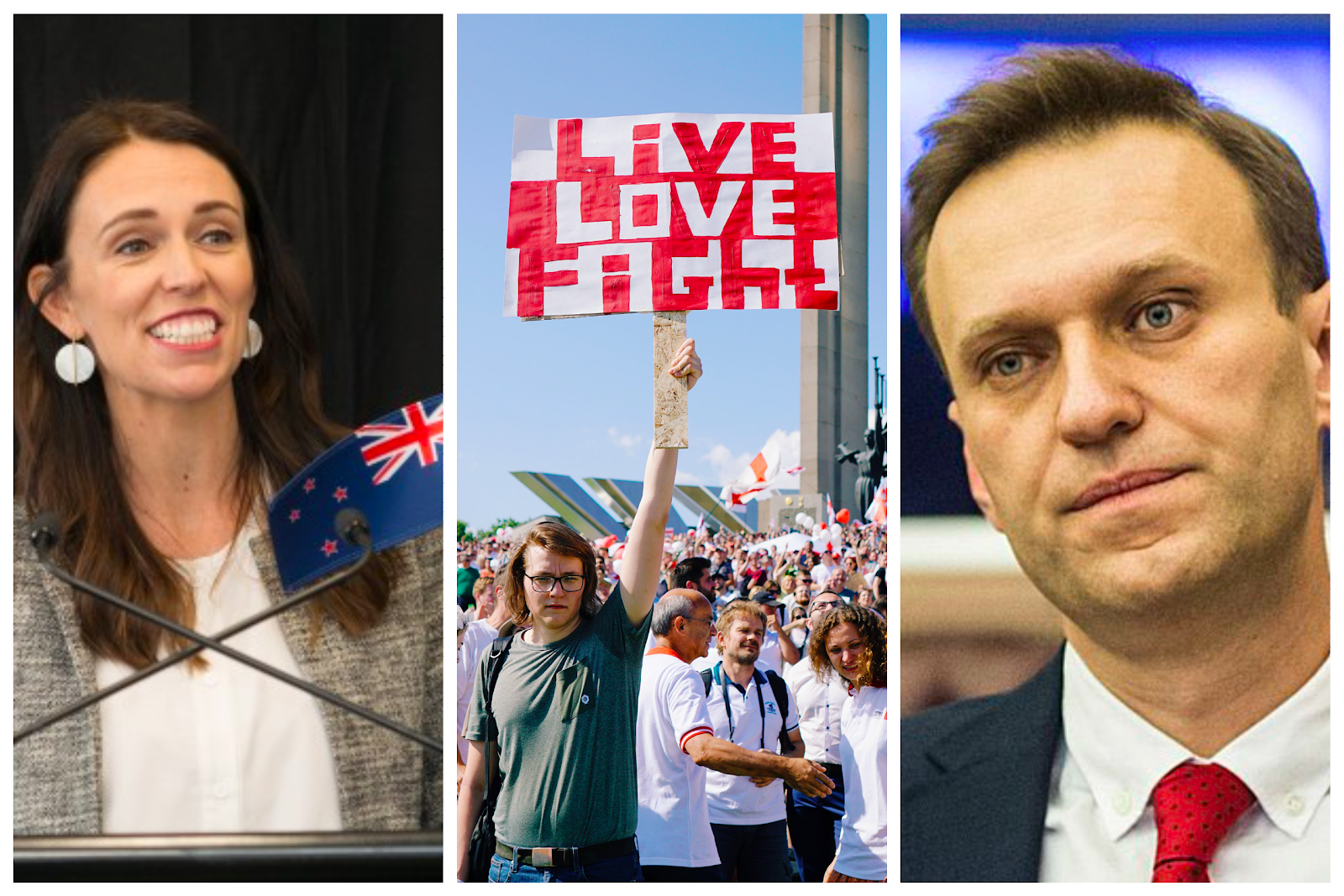Isabella Podwinski / @izzy_podwinski
Russian opposition leader suspected of poisoning
Russian opposition leader and fierce critic of Vladimir Putin, Alexei Navalny, is in a Siberian intensive care unit with suspected symptoms of poisoning, according to his spokesperson.
Kira Yarmysh, the spokesperson to Mr Navalny, expressed concern on social media and gave details of his condition.
“We assume that Alexei was poisoned with something mixed into his tea. It was the only thing that he drank in the morning,” she said.
Mr Navalny reportedly felt ill while returning to Russia from Tomsk in Siberia on Wednesday morning, local time.
While en route to Moscow, the plane carrying Mr Navalny had to make an emergency landing in Omsk as his condition worsened.
The Kremlin released a statement upon news of Mr Navalny’s condition and wished him a speedy recovery.
New Zealand general election postponed
New Zealand’s 2020 general elections will be postponed, in a call made by current Prime Minister, Jacinda Ardern as cases grow in the country’s north.
The election will be moved from 19 September to 17 October, after numerous consultations with opposition parties who said it wouldn’t be “just or fair” to hold elections under such precarious circumstances.
The delay comes as New Zealand manages its first outbreak of the virus since June, just after New Zealanders celebrated 100 days of being COVID-free.
Despite the increase of cases associated with the cluster in Auckland, Ms Ardern is adamant the election date is final.
“This is why the Electoral Commission has planned for the possibility of holding an election where the country is at level 2, and with some parts at level 3. I will not change the election date again,” she said.
The highest global temperature ever reached in California
California’s Death Valley in the Mojave Desert recorded a searing 54.4 degrees on Sunday, making it the highest air temperature recorded in the last century.
The valley hit the scorching temperature at 3.41pm local time, as reported by the US National Weather Service at Furnace Creek.
In a comment to NY Times, Brandi Stewart, spokeswoman for Death Valley’s National Park said Death Valley is no stranger to high temperatures as the village rests 58m below sea-level.
The composition of the valley with its lower-than-sea-level basin and surrounding mountains makes it easy for hot air to be trapped and circulate.
Death Valley serves as a popular tourist destination, but according to a recent census, holds a population of 576 residents.
Covid-19 to blame for $2 billion Qantas loss
Qantas chief executive, Alan Joyce, has declared a $2 billion loss for the Australian airline giant with its full-year revenue slashed by 21 per cent.
In a conference on Thursday morning, Mr Joyce pinned the loss down to a $1.4 billion write-down in the value of assets and $642 million in one-off costs associated with the airline’s pandemic restructuring program.
“COVID will continue to have a huge impact on our business and we’re expecting a significant underlying loss in FY [financial year] 21,” said Mr Joyce.
He also announced in addition to the profit loss, 4,000 workers will be laid off by September, along with the 20,000 who are already being stood down.
Mr Joyce reiterated the airline is unlikely to welcome back international travel until July 2021 at the earliest, with the possible exception of flights to New Zealand.
Protestors take to streets of Minsk, opposing President Lukashenko’s election victory
A sea of protestors gathered in the Belarus capital of Minsk last weekend, protesting against what many believe to be a rigged election.
Unofficial reports of as many as 100,000 people took the streets of Minsk calling for political change against Lukashenko’s continuing reign.
But in an address to supporters outside of Parliament last Sunday, Lukashenko is adamant he is not going anywhere.
“If you destroy Lukashenko, destroy your first president, it will be the beginning of the end for you,” he said.
President Lukashenko has also raised the possibility of Russian military intervention if civil unrest continues.
But many are not backing down, such as opposition politician Maria Kolesnikova, who urged all Belurisians to stand up and join the protests.
“This is your last chance. Fight your fear like all of us did. We were all scared, but we fought our fear. Join us and we will support you,” she said.

